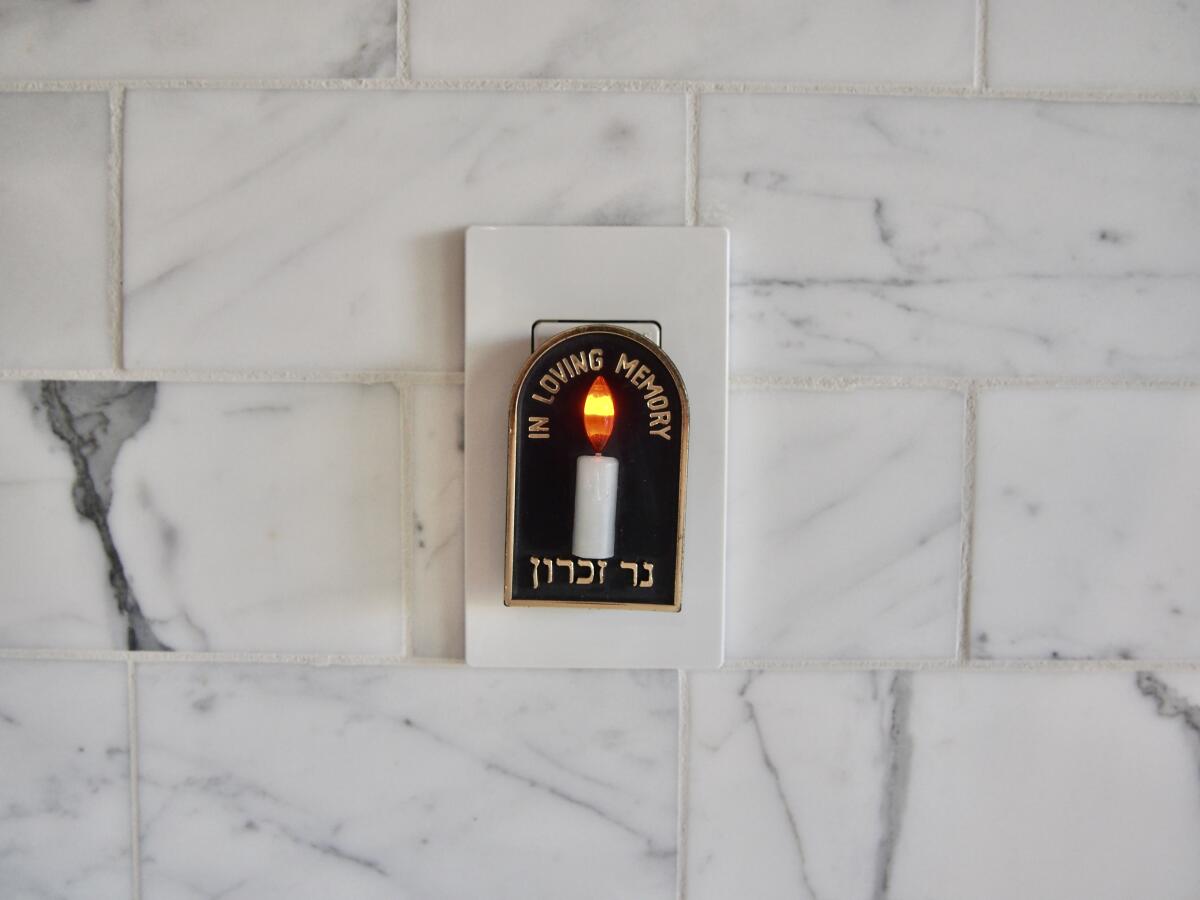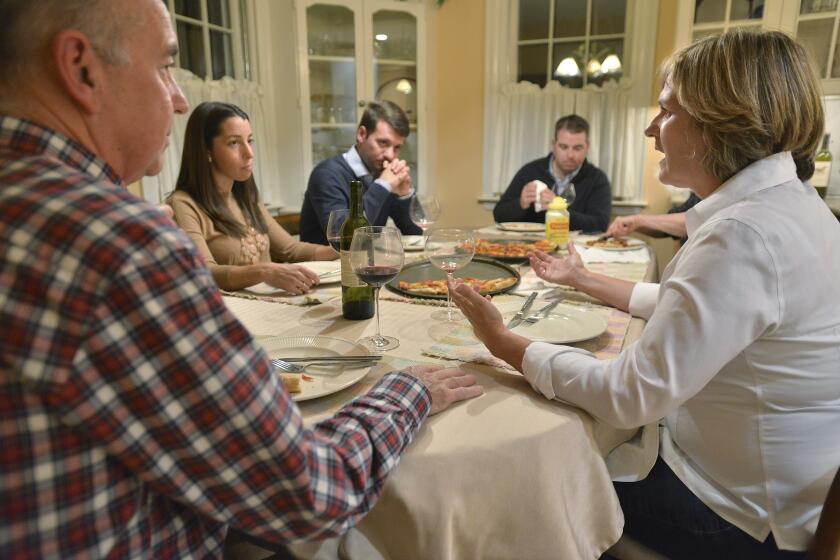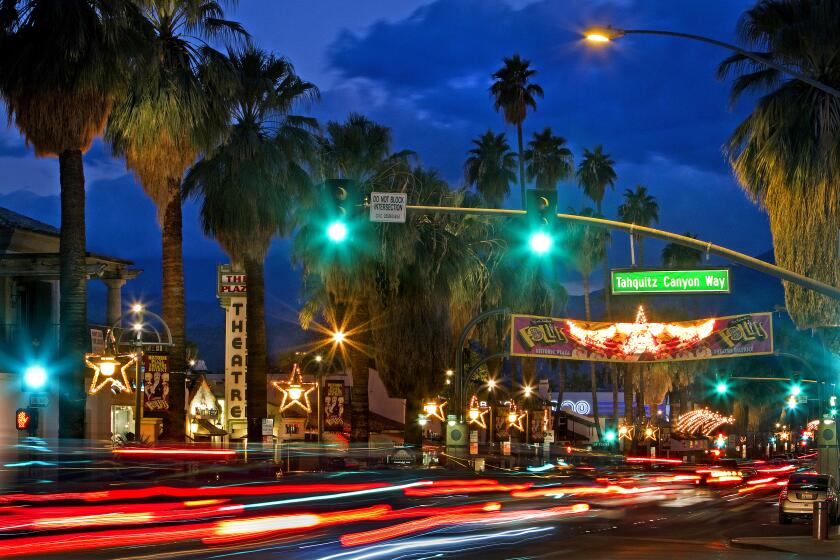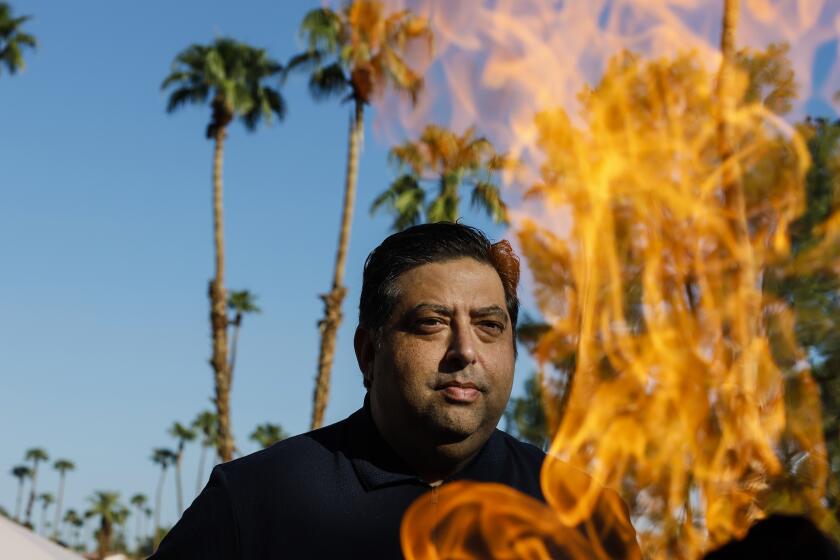In a season of memories and melancholy, I turn my focus toward giving thanks

- Share via
Autumn is my season of memory and melancholy.
I suppose it began when I was a child growing up surrounded by grandfathers who still remembered “the old country.” On a patio, somewhere inside Canyon Country Club, my grandfather playing cards. The golden hour. Cigar smoke wafts, he turns to me, says: “Remember this: We’re not hide-in-the-attic Jews. We’re fight-you-in-the-street Jews, OK?”
The other men nod. Take a drink. Someone calls rummy. It’s as if I’m in the middle of a fading Polaroid. At Thanksgiving, a few days later, he asks, “Do you remember what I told you?” I tell him I do. He winks and kisses me hard on the forehead. “My boychik.”
My autumnal state of mind did not go unnoticed. I remember my Nana telling me once that there was nothing wrong with just being happy this time of year, even though it had only been eight weeks since her husband had died. “Boychik,” she said, holding onto my face, “be thankful for the memories you have! You will always have them!”
It seems people would rather skip dessert than risk hearing another one of their relative’s political rants. But there may be ways to bridge such polarization.
How I wish she was right. How I wish I could pull my memories off a shelf and examine them, like Nana’s old Lladro porcelain figurines, which always seemed so fragile and cherished. Nana is long since gone, too, and I fear this memory of her telling me to be happy will one day fade and I’ll be left with the memory of writing it, not living it. For now, I can still feel her hands on my face, the heat of her palms a slow warming sensation that spreads down my neck.
But now I have a new ache: a genetic pulsing salted with the real history of my grandparents and stories of a childhood in Ukraine, of dogs chasing down Jews on the streets. Of the joy of finding a home in Walla Walla, of living a good life in Palm Springs, of never forgetting the past.
I’m 52 years old now and I cannot imagine the context of my grandfather telling me we were not hide-in-the-attic Jews. Perhaps there wasn’t any context. Perhaps he simply knew I’d figure it out myself one day. The terrible truth being that he understood I’d need to know it.
Contributor: As the new year approaches, finding peace in the desert, among my family’s ghosts
In a year when antisemitism flowed freely, light melancholy centers me. It tells me I am capable of forgiving in the same way my grandparents must have been to live here.
The act of remembrance is a key aspect of the Jewish faith. Telling the tale is as important as living through it. But memory can be a broken time machine, transporting you to a fixed spot, but maybe the truth of the moment has changed.
My wife and I are not religious people and yet each year on Nov. 1, my wife wakes up before me and plugs in an electric Yahrzeit candle above our toaster, in memory of my mother. The Yahrzeit candle is a tradition in the Jewish faith: When our soul leaves this life, it leaves behind darkness, and thus we use the candle to bring light back to the world after a loved one’s passing.
My wife, who isn’t even Jewish, performs the ceremony each year on her own, in the dimness of our kitchen. One morning, I wake up, go to toast a bagel and come face to face with this mortal coil. I stare at the electric flame and the Hebrew words embossed on the faux wood: Ner Zicaron. Light of remembrance.
For 12 years my wife has done this. We’ve never spoken of it. One day, it is there. Thirty days later, it is gone. I don’t even know where the candle lives the rest of the year. But the truth is that I don’t miss my mother. What I mourn is the loss of time. What I mourn is the relationship we didn’t have.
This year, the comfort of seeing those Hebrew words every day, directing me toward a larger, more profound truth — that there is a path lit for me in this world — is part of what has stopped me from turning my season of memory into something sadder, and has focused me toward giving thanks.
Tod Goldberg’s ‘Gangsters Don’t Die’ concludes the series of ‘desert noir’ featuring a fake rabbi — and the very real spiritual journey that led him there.
Because this Thanksgiving, while I find myself heartbroken and angry, I also find myself ruminating on the remarkable good I have encountered in this life. A few years ago, I met a woman at the Holocaust Museum in Washington, D.C. She radiated joy. I asked her how it was she’d lived all these years without descending into hatred. She told me she’d survived by searching for and finding beauty. I burst into tears. She hugged me when I left her and whispered into my ear that I must let go of my regrets and live boldly.
I wish I could say that has come to pass. But when I sit down with my family for Thanksgiving, I will push aside my fears and focus instead on the splendor that still exists in this world, even if it is as simple as the way light reflects off the desert, or the memory of hands on a boy’s cheeks.
Tod Goldberg is an author, most recently of “Gangsters Don’t Die.” He directs the Low Residency MFA Program in Creative Writing and Writing for the Performing Arts at UC Riverside.
More to Read
A cure for the common opinion
Get thought-provoking perspectives with our weekly newsletter.
You may occasionally receive promotional content from the Los Angeles Times.












